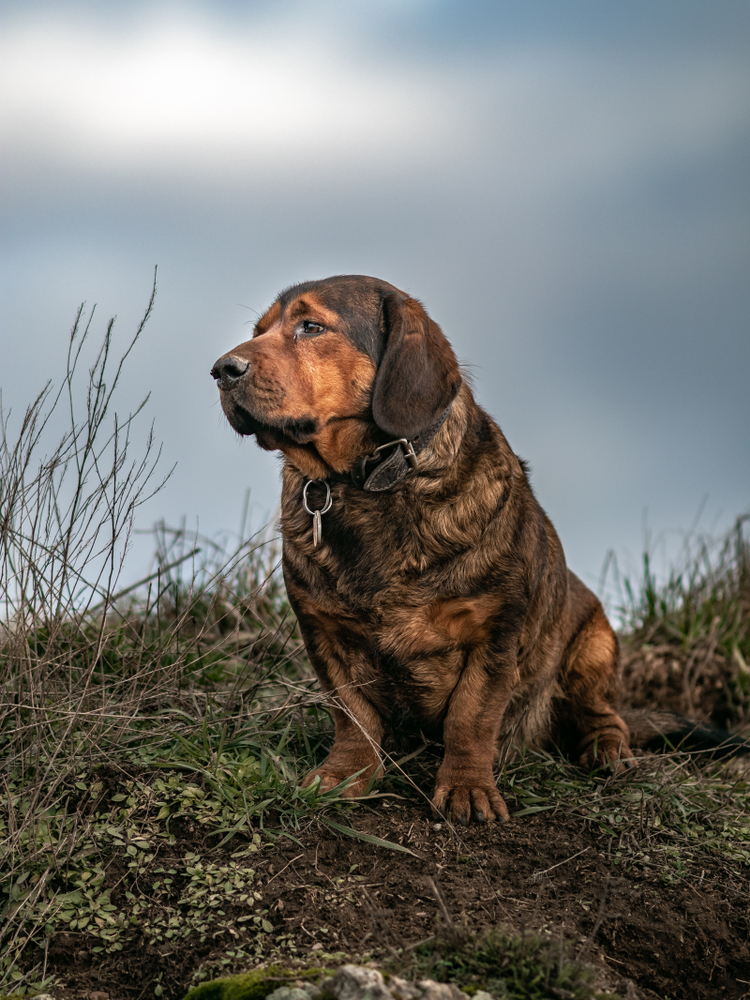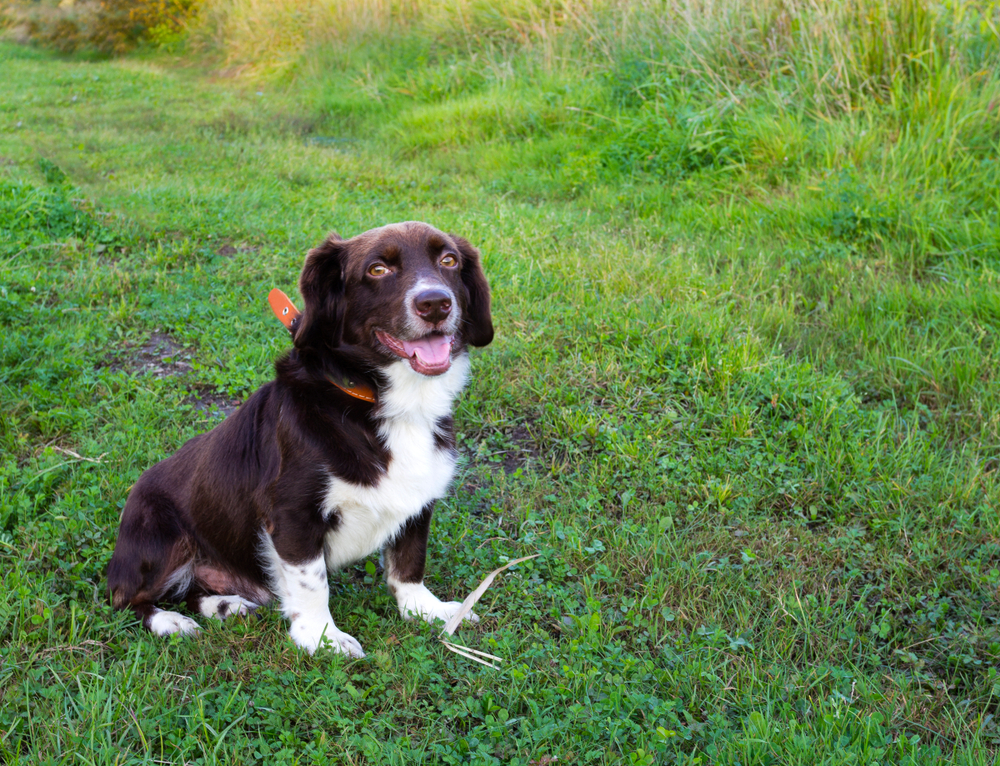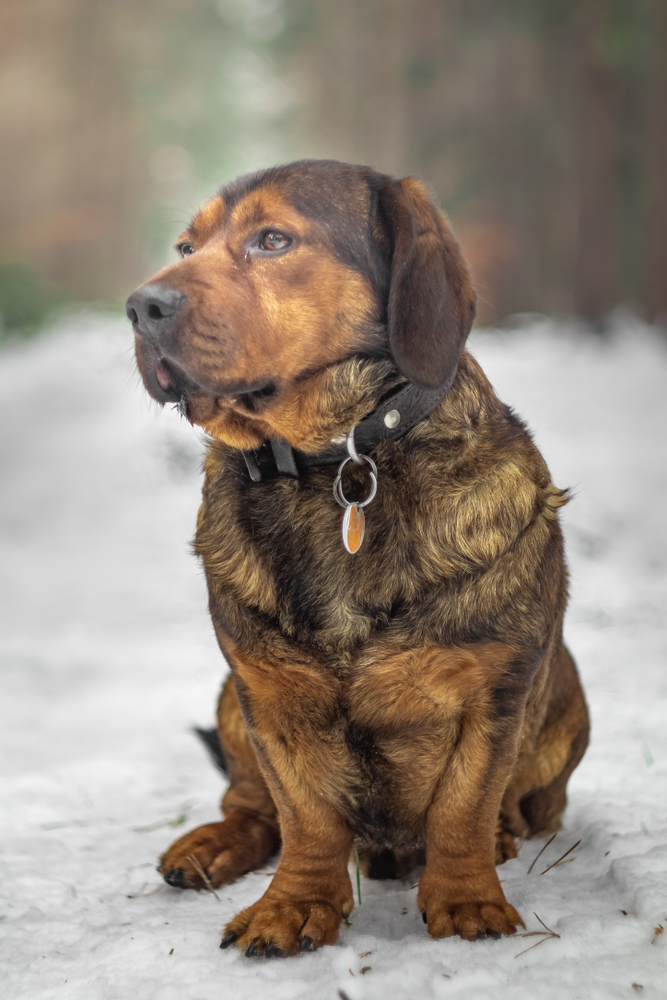Behavioral Challenges and Solutions for Alpine Dachsbracke
In this comprehensive guide, we will explore the behavioral challenges faced by the Alpine Dachsbracke breed of dogs and provide effective solutions to overcome them. The Alpine Dachsbracke, also known as the “Alpenlandischer Dachsbracke,” is a versatile hunting dog breed originating from Austria. Their exceptional hunting skills and sturdy built make them excellent companions for hunters. However, like any other dog breed, they have their unique behavioral tendencies, which can sometimes pose challenges for their owners. Through this article, we aim to equip you with the knowledge and tools to address these challenges effectively and build a strong, harmonious relationship with your furry friend.

Understanding the Alpine Dachsbracke
Before diving into specific behavioral challenges, it is crucial to understand the nature and characteristics of the Alpine Dachsbracke. These dogs are known for their intelligence, determination, and hunting instincts. Originally bred to track and hunt game, they possess a strong sense of smell and are highly driven by their natural instincts. While these qualities make them excellent hunters, they can also lead to certain challenges when kept as pets in non-hunting households.


Challenges and Solutions
1. Excessive Barking
One of the common behavioral challenges faced by Alpine Dachsbracke owners is excessive barking. These dogs tend to be vocal, which can be a concern, especially in urban environments or when neighbors are nearby. To address this issue, early training and socialization are essential. Teaching the “quiet” command from an early age can help curb excessive barking. Additionally, engaging the dog in regular physical and mental exercises will channel their energy and reduce the need for excessive vocalization.
2. Stubbornness and Independence
Alpine Dachsbrackes are known for their independent and stubborn nature, which can sometimes make training challenging. However, positive reinforcement techniques work wonders with this breed. Utilizing rewards, treats, and praise for good behavior will motivate them to respond better to training commands. Patience and consistency are key; avoiding harsh punishments will create a more cooperative and trusting bond with your pet.
3. Separation Anxiety
Due to their strong bond with their human family members, Alpine Dachsbrackes may develop separation anxiety when left alone for extended periods. This can lead to destructive behaviors, excessive barking, and stress for the dog. To alleviate separation anxiety, gradual desensitization can be helpful. Start by leaving the dog alone for short periods and gradually increase the duration. Providing toys, treats, and a comfortable space can also help distract and comfort them during your absence.
4. Prey Drive
The Alpine Dachsbracke’s strong hunting instinct can result in a high prey drive, leading them to chase after small animals or even household pets. Proper leash training and supervision are crucial, especially in areas with wildlife or other animals. Using a sturdy leash and providing ample mental stimulation during walks can help redirect their focus away from potential prey.
5. Socialization with Other Pets
While Alpine Dachsbrackes can be friendly with other dogs, early socialization is vital to ensure they develop appropriate behaviors around other pets. Enrolling them in puppy classes and arranging playdates with well-behaved dogs can aid in creating a well-adjusted and sociable canine companion.
6. Exercise Needs
As an energetic hunting breed, Alpine Dachsbrackes require regular exercise to keep them physically and mentally stimulated. Daily walks, interactive play sessions, and challenging puzzle toys will help burn off excess energy and prevent behavioral issues stemming from boredom.
7. Positive Reinforcement Training
Positive reinforcement training is particularly effective with Alpine Dachsbrackes. Reward-based training methods, such as using treats, praise, or playtime, motivate and encourage good behavior. Consistency and patience are key, as this breed responds best to gentle guidance and positive feedback.
8. Providing Mental Stimulation
Besides physical exercise, mental stimulation is equally crucial for Alpine Dachsbrackes. Engaging them in interactive games, puzzle toys, and obedience training will keep their minds active and prevent boredom-related behaviors.
Behavioral Challenges and Solutions for Alpine Dachsbracke
Understanding and addressing the behavioral challenges faced by the Alpine Dachsbracke is essential to foster a strong and loving bond with these intelligent and determined dogs. By implementing positive reinforcement techniques, ensuring proper exercise and mental stimulation, and promoting early socialization, we can guide Alpine Dachsbracke owners in overcoming challenges and creating a harmonious relationship with their beloved pets.
